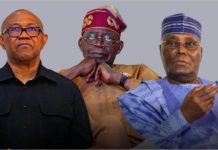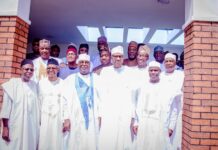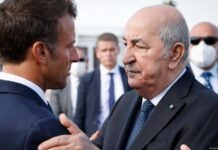There public unease as the Nigeria Labour Congress and the organised private sector have raised concerns about the jerking up of the price of petrol by the Nigerian National Petroleum Company Limited (NNPC).
Recall that NNPC’s retail outlets had yesterday increased the price of premium motor spirit, popularly called petrol to N1, 030 from N897 per litre in Abuja and from N868 to N998 per litre in Lagos.
As of yesterday after the price adjustments were announced, the other locations witnessed similar price hike.
In Edo State for instance, Punch reported that most marketers sold the product for N1, 250 per litre, while in Delta State it went for between N1, 100 and N1, 200 per litre and between N1, 200 and N1, 250 per litre in Benue.
In Abia, the product sold for N1,200 and N1,300; in Yobe, it sold for N1,098, N1,150 and N1,170 per litre while it was offered for N1,115 in the evening, up from N970 and N1000 it sold in the morning.
Reacting to the increase, the NLC said in a statement by its president, Mr Joe Ajaero that it is an “aberration that a private company (NNPCL) is the one fixing prices and projecting itself as a hegemonic monopoly.
Ajaero noted that the price hike “will further deepen poverty as production capacities dip, more jobs lost with multidimensional negative effects.”
He demanded an immediate reversal of the rate hike, saying stressing that “previous increases did not produce any good results” as “people only got poorer.”
The statement reads: “We are dismayed by the latest increase in the pump price of petrol. It looks like the only thing this government is known for is increase in the pump price of petrol without commensurate capacity of Nigerians or mitigatory measures.
“Even following the logic of market forces, we find it an aberration that a private company (NNPCL) is the one fixing prices and projecting itself as a hegemonic monopoly.
“We challenge the government to go to the drawing board and present us with a blueprint for an inclusive economic growth and national development instead of this spasmodic ad hocism and palliative policy.
“It needs no stating the fact that the latest wave of increase has grossly altered the calculations of Nigerians once again at a time they were reluctantly coming to terms with their new realities.
“It will further deepen poverty as production capacities dip, more jobs lost with multidimensional negative effects.
“In light of this, we urge the government to immediately reverse this rate hike as previous increases did not produce any good result. People only got poorer.
“But more fundamentally, the government should be bold enough to tell Nigerians in advance the destination it wants to take the country.”
Similarly, the director of the Manufacturers Association of Nigeria (MAN), Mr Segun Ajayi-Kadir, said the hike it would further drive up the cost of production for manufacturers, resulting in resulting in fewer purchases of products by the consumers, who, according to him, would face increasing transportation costs.
“The second increase in one month will send high costs across the value chain for the manufacturer. In terms of the distribution of our products, it means that we are going to pay much higher for it and this will of course impact the prices at which our locally produced items will go.
“Together with the fact that the disposable income of the average Nigerian has dropped, we are likely to witness a further dip in our sales figures,” Ajayi-Kadir said. “For some small and medium scale enterprises that use diesel in their processes, it is going to be an increase in costs.
“Additionally, workers who make trips are likely to request another raise to allow them to transport themselves to work. Since people will spend more on transport, it reduces the money they spend on other goods, whereas we need more purchases to support more production.”
“We already have a huge advantage in Dangote Refinery coming on stream and doing the local supply. It is a welcome development and we are very proud of that as an indigenous producer in our history.
“We are looking forward to how the government would deliberately incentivise the reduction of the cost of petrol. When we subsidised imported petrol, we could say we were subsidising consumption.
“But if arrangements could be made so that Dangote, for instance, would get crude at reduced costs, it could be a way of giving subsidy to Nigerians, but you would be subsidising production, which would be for the overall well-being of Nigerians,” he said.
For his part, the director, Centre for Promotion of Private Enterprise, Dr Muda Yusuf, said the Nigerian economy is not ripe for full-blown deregulation and market principles on all fronts.
He said the price increase is “regrettably ill-timed” stressing that “there is always a place for political economy in the interest of the vulnerable segments of society.”
“What the economy needs at this time are measures to ease the current economic and social challenges; not policies that would aggravate them.
“It is desirable to urgently cut import duties and taxes by a minimum of 25 per cent on all industrial raw materials, 18-seater passenger buses and above and cars of 2,000cc engine capacity and below,” Yusuf added.























































